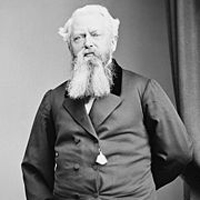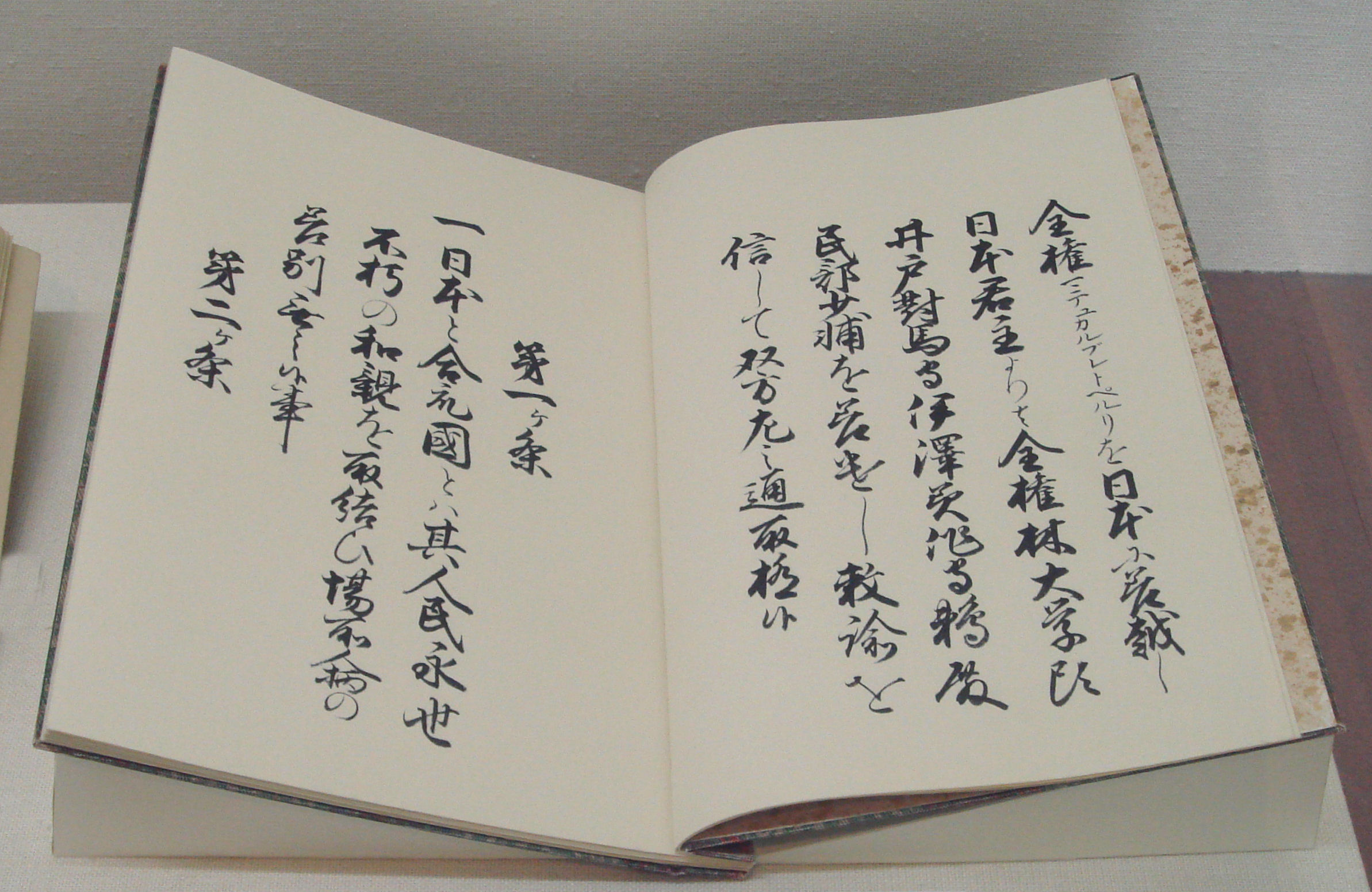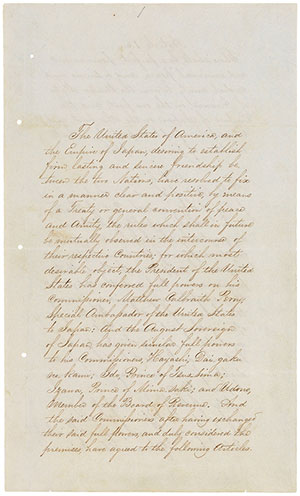"I shall be the first recognized agent from a civilized power to reside in Japan. This forms an epoch in my life and may be the beginning of a new order of things in Japan. I hope…I may have honorable mention in the histories which will be written on Japan and its future destiny" - Townsend Harris, entry on August 19, 1856, The Complete Journal of Townsend Harris [1930]
Second Coming
With Manjiro's advice and risk of war, the shogunate wrote a treaty on Perry's next visit in February 1854, the Convention of Kanagawa.

Townsend Harris
Unknown artist [n.d.]
Library of Congress Miscellaneous Items in High Demand
"It only remained, therefore, to secure, for the present, admission into the Kingdom, and so much of trade as Japanese jealousy could be brought to concede. At length, after much and oft repeated discussion, the point was yielded that certain ports might be opened to our vessels; and then, in the interview of March 25th, came up the subject of consuls…[Com. Perry:] This provision must be in the treaty, though I will stipulate for only one, to reside at Simoda [sic.], and he will not be sent, probably, for a year or two from this time" - Matthew Perry and Francis L. Hawks, [1856]
The first US Consul in Japan, Townsend Harris, resided in Shimoda, far from the capital Edo. However, Harris persevered in his attempts to create trade agreements.

Japanese Copy of Convention of Kanagawa [1854]
Foreign Ministry Archives, Tokyo

American Copy of Convention of Kanagawa [1854]
National Archives
Harris lacked the weapons that made Perry successful, allowing Japan to evade his requests. However, learning about Britain's brutality with China in the Second Opium War caused Japan to sign the Harris Treaty in 1858 to avoid a similar fate. The Dutch, Russians, British, and French all drew similar treaties with Japan before 1859. These Unequal Treaties largely favored the West.
"…[Harris's] treaty provided that the American minister was to be in Edo, not away from the centre of events in Kanagawa or Shimoda, as the Japanese had wished; that trade was to be entirely free of official intervention and subject to low tariffs…that Americans in Japan were to remain under American law, administered in consular courts…and that five ports be opened…in addition to the existing ones of Shimoda and Hakodate" - Beasley [2000]
________________________________________________________________________________________________________________________________________________________________
Perry's gunboats and Harris's diplomacy succeeded in shattering sakoku. Along with other factors, this broke Japan's final barrier to modernization; the Tokugawa.
________________________________________________________________________________________________________________________________________________________________